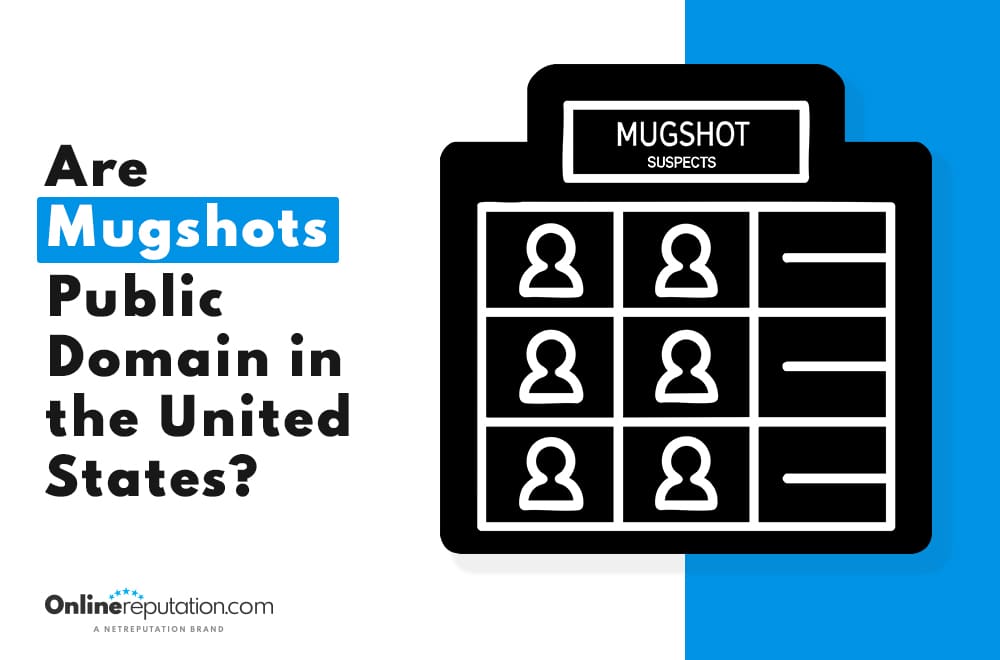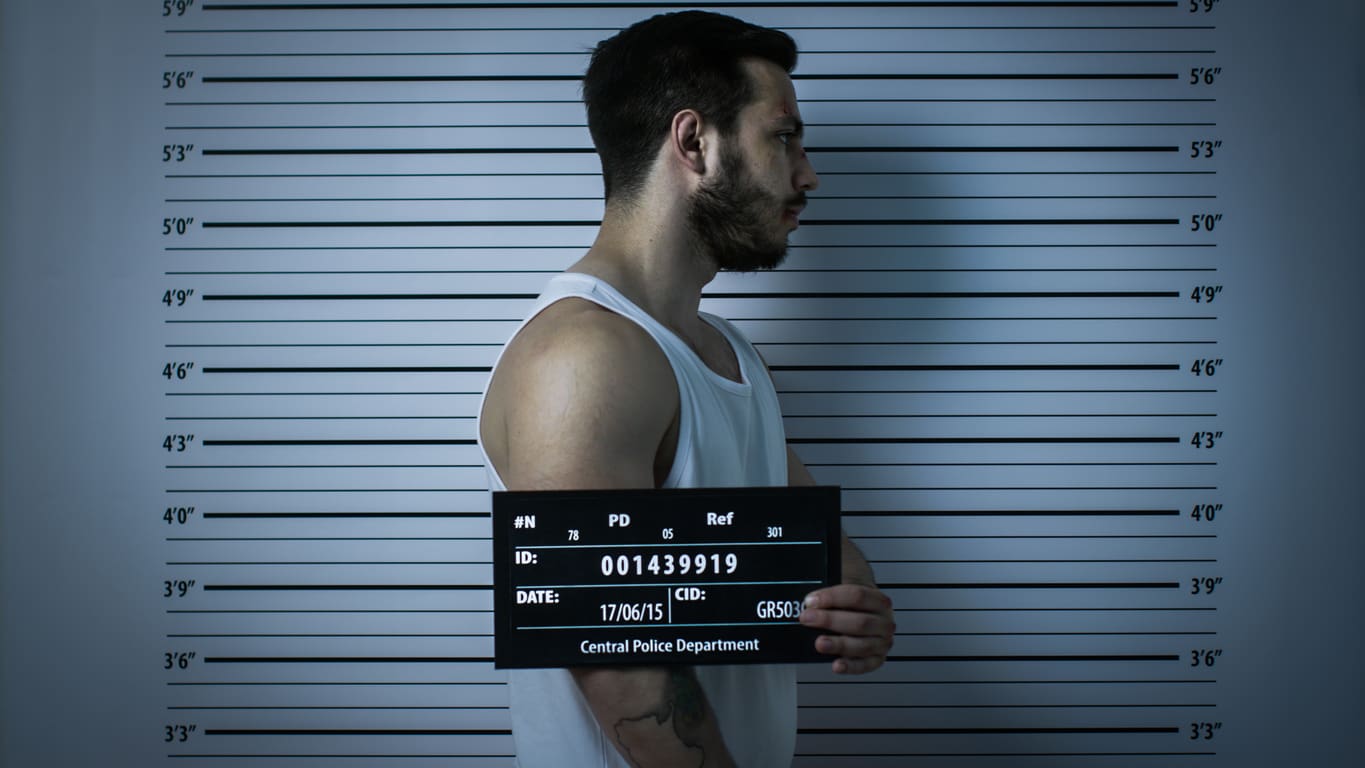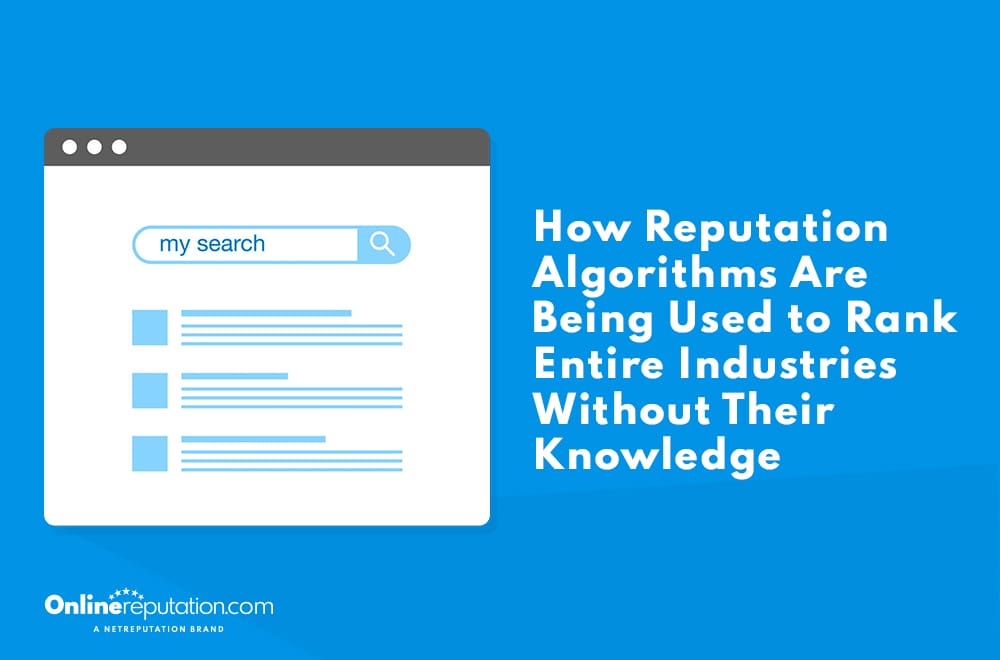
If you’ve ever wondered, “Are mugshots public domain?” this guide will help you understand why your mugshots are online and how you can get them removed once and for all.
If you’ve ever been arrested for any reason, chances are your mugshots and arrest details were collected and shared by law enforcement agencies.
Eventually, those same agencies may release your mugshots and arrest records to the public by posting them on official websites. From there, mugshot sites republish your arrest photographs and other arrest information on their own databases.
When your mugshot appears in search results, your online reputation and your privacy can be damaged.
In our guide below, we will cover why mugshots are part of the public domain. We’ll also answer your pressing questions about why your mugshots are online and how to remove them.
Along with our parent company NetReputation, OnlineReputation.com provides information and services to help you protect your digital presence. Get started with a free online reputation analysis here.
What Is the Public Domain?
Despite its common use in copyright law and copyright claims, the term “public domain” is not defined by any copyright statutes.
Generally, the term “public domain” is used to refer to any records, creative works, or content that isn’t specifically protected by copyright law. This can include:
- Works where the copyright has expired.
- Work produced by the United States government, state law enforcement officials, or local entities.
- Works that do not have a valid copyright notice prior to March 1989.
- Works that are not specifically original, including records republished or copied from public records or government documents.
Mugshots may or may not be part of the public domain.
Under federal government guidelines, mugshots produced by federal agencies are automatically included in the public domain. However, documents, records, and images produced by state or local agencies are governed by the laws of the locale.
Many states have passed laws regarding the sharing or distribution of certain public records, including mugshots, arrest photos, arrest records and criminal records.
Why Do Law Enforcement Agencies Post Mugshots Online?
During an arrest and booking, the police department or sheriff’s office typically takes booking photographs as part of the process. These are more commonly referred to as mugshots.
After an arrest, all arrest records and booking photos are published online.
Why do government agencies do this? The simple answer is that they may not have a choice. Certain open records laws, such as Florida’s “Sunshine” law, require all public records to be collected and shared online.
Also, as stated earlier, all works made by federal agencies are automatically part of the public domain. Agencies like the Federal Bureau of Investigation and the Drug Enforcement Administration must share each photo and record collected for law enforcement purposes.
What Federal Law Enforcement Agencies Say About Online Mugshots
Federal agencies have their hands tied when it comes to posting your booking photo, mugshot, arrest records, criminal records and other information online. Copyright law does not apply when it comes to criminal and arrest records. Federal and many local law enforcement agencies must share all records with the general public.
These federal agencies have no say in what states or other local entities do with arrest details, mugshots, or other records collected, though. Nevertheless, what’s most common is that as long as privacy laws are adhered to by the individual states, police photos and images collected as part of an arrest will be shared with the public.
How Did My Arrest Photos Get Published to Mugshot Websites?
Mugshots have a sneaky way of turning up in the most unexpected places online. Why are your mugshots online, and how did they get there? There are three primary ways that mughsots, arrest records, and criminal records end up on the web.
1. Public Records
As mentioned, any time you deal with a government agency, official records of that interaction may become part of the public record. Typically, civil records and arrest records collected by federal, state, or local agencies are shared publicly due to public records laws.
Nearly every agency involved in capturing and processing criminals, including local police departments, will publish mugshots online as part of the public record.
When your mugshot is published by a federal agency or local law enforcement agencies, it’s done so in keeping with public domain requirements.
2. Data Aggregators and Data Brokers
Once public court records, arrest records, criminal records and other information are collected and distributed by government agencies in the digital environment, they tend to spread quickly. The culprits in this viral spread of sensitive information are people-finder websites. Those sites are also called data brokers or data aggregators.
Data aggregators and information brokers use automated tools to scrape publicly available records from government databases. Then, they republish this information on their websites.
Some data brokers specialize in state law enforcement records. Others will target the records of federal law enforcement agencies like the FBI and federal prisons, sheriff’s office records from each county of a particular state, or police files on the local and state levels.
Data brokers may provide free access to public information, or they may charge a fee for individuals to gain access to in-depth records. In either case, potential employers conducting a background check may be able to find out about your past — including arrest information, mugshots, and criminal histories — even if you were wrongfully arrested.
3. Mugshot Websites
In simple terms, mugshot websites are also data broker websites. They republish information collected from the public domain and host it on their own sites. The difference is that data broker sites collect all types of personal information; mugshot sites focus on arrest records, criminal history information and similar data.
Mugshot websites have become incredibly popular. Many of them started by posting celebrity mugshots. Then, they expanded their offerings to include criminal charges of every average person who has been arrested or detained by law enforcement officials.
Some websites only post mugshots. Others include a person’s criminal history, arrest and court records, or private, personal information. If one site gets your booking information and arrest photos, those mugshots may suddenly appear on multiple websites.
Why Are Mugshots So Popular?
The internet loves crime stories, making mugshot websites incredibly popular with internet users. Because these sites are so popular and get so much web traffic, they tend to rank at or near the top of search results. Google Ads or other advertisements placed on these sites rake in money. This gives site owners an incentive to keep posting booking photos — even of innocent people.
Each mugshot site uses a variety of strategies to justify the publication of mugshots and arrest records. In most cases, new media rights like the Freedom of Information Act, publication for public interest, and First Amendment-protected free speech are all used to create a justification for sharing embarrassing images.
One mugshot can start the ball rolling. Before you know it, other mugshot websites will pick up your embarrassing arrest photo. In no time, your digital reputation will suffer, and you may struggle to restore trust between you and others.
Today, online reputation management is more important than ever before. Get started with a free analysis here or explore our services offered through our parent company, NetReputation.
Getting Your Mugshot Removed From Mugshot Websites
Even though mugshots are typically part of the public domain, there are certain circumstances and restrictions regarding how they’re used, how they’re shared, and what people can do to get them removed. Because they are part of the public record, however, they will remain there until you begin the process of removal.
There are three potential ways to get your mugshot taken down.
1. Reach Out to Each Online Database
Find out where your mugshot appears online, then contact each mugshot website owner to request removal. A written request is the best way to get the process started. In that request, state why you want your mugshots removed and make your claim convincingly.
Most mugshot websites will honor removal requests if the requester can demonstrate a specific reason or government documents that show your charges were dropped. Valid reasons include attacks on personal privacy, violations of privacy laws, expungement of criminal charges, etc.
2. Expunge Your Criminal History and Adult Arrest Records
Expungement, also known as expunction, is the court-ordered process whereby a person’s arrest report, criminal record, or mugshot images are removed from public records. In essence, an expungement is a form of setting aside a criminal conviction.
You or your attorney can apply to have records expunged or your case sealed. Typically, you’ll make this request via court order to the court, and it may require legal assistance to complete.
Once your request for expungement goes through, your online mugshot can be removed from government agencies’ records and public records databases. From there, the law requires mugshot websites to remove your mugshots or face civil penalties like fines or loss of service.
3. Hire a Mugshot Removal Team
Alternatively, you can also hire a mugshot removal company to find and remove your arrest records online. The leading mugshot removal companies use proven strategies to get your booking photos taken down once and for all.
These removal services include:
- Advanced tactics to find arrest records
- Formal requests for removal
- Digital Millenium Copyright Act (DMCA) takedown notices
- Terms of Service (ToS) violation notices to internet service providers (ISPs)
Some of the best mugshot removal companies also use proven online reputation management strategies, too. This allows them to remove mugshots and restore damaged reputations at the same time. With comprehensive services like these, a person can clear his or her name and once again be proud of their digital footprint.
Contact OnlineReputation Today
OnlineReputation is a leader in information resources for the online reputation management industry. Our guides provide the details you need to make informed decisions about choosing the right services for your reputational needs, including those related to arrest records and mugshot removal.
Wiping your mugshot from the internet can be a complex and frustrating process. Our guides to mugshot removal law by state, along with our other resources, make it easy to understand your options, empowering you to make smart decisions.
To learn more about your mugshot removal options, contact our office today at 844-230-3803 for a free consultation.
You might also like
What Is the Impact of Branding in Digital Marketing?
If you’ve ever wondered, “Are mugshots public domain?” this guide will help you understand why your mugshots are online and …






